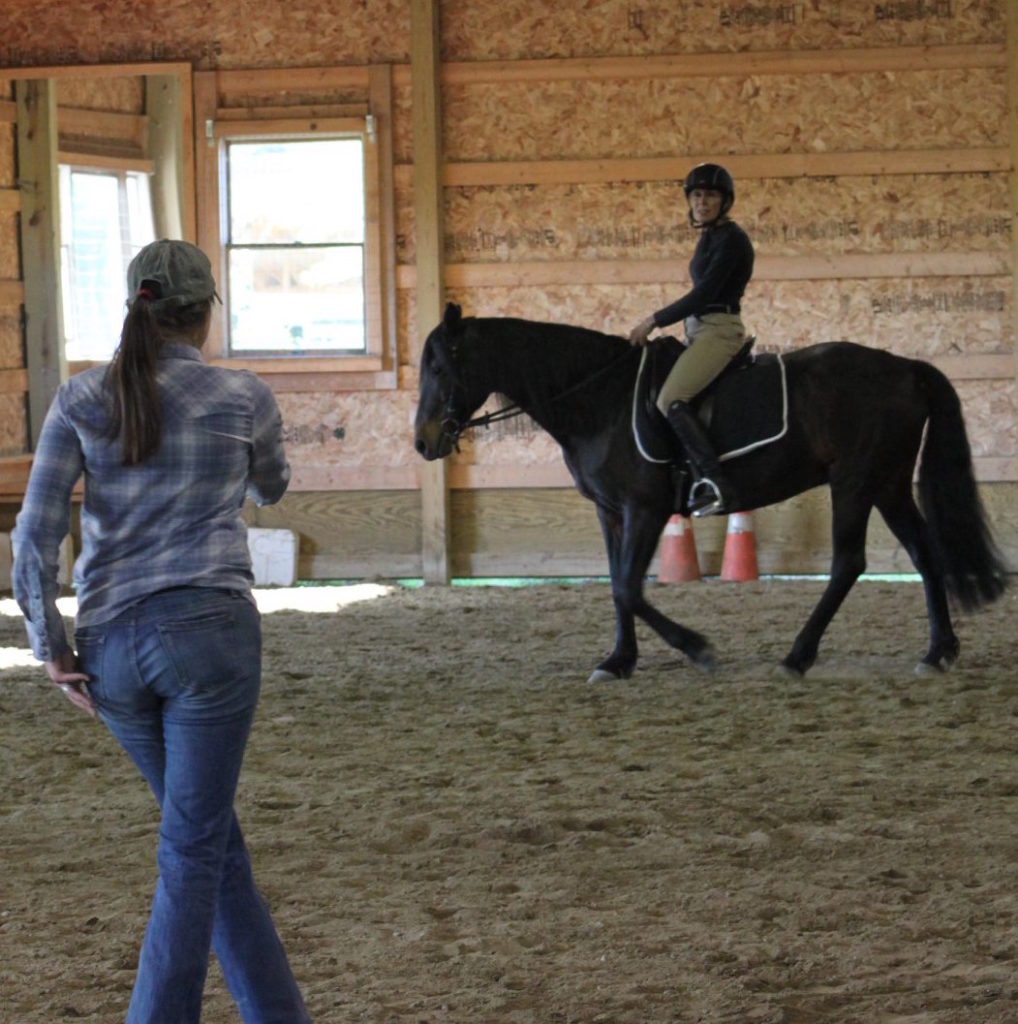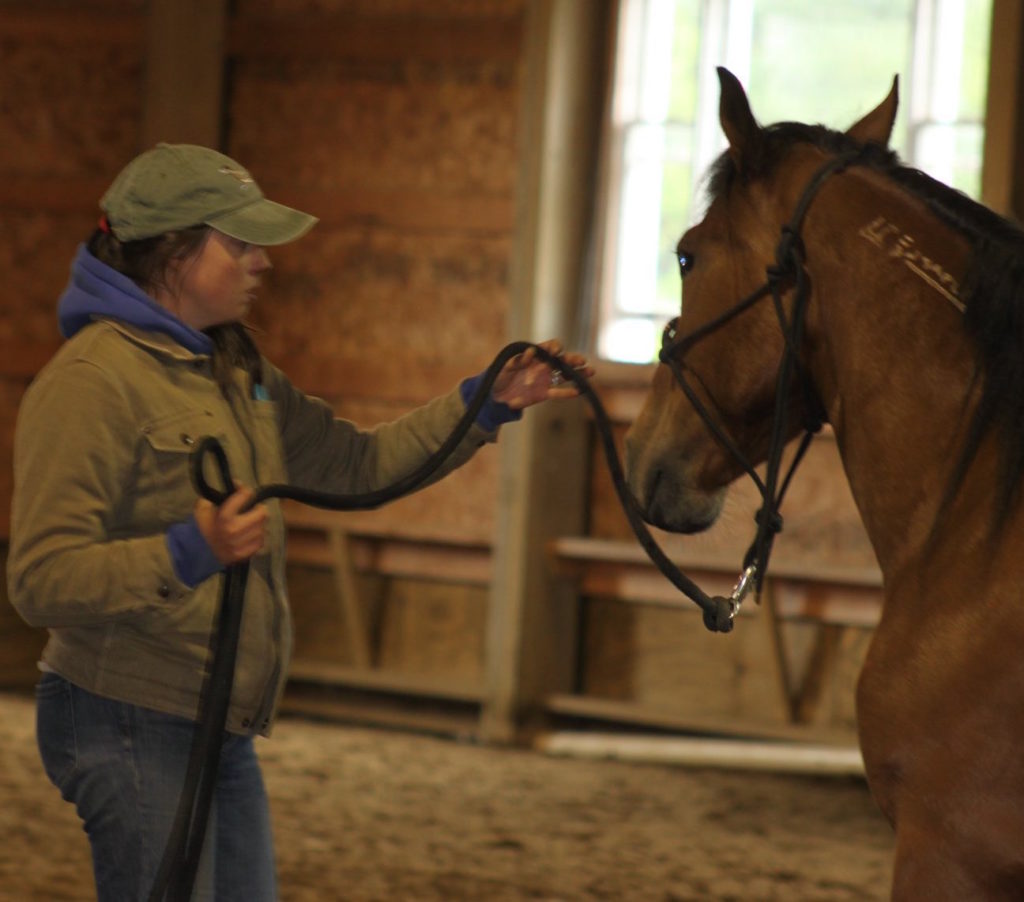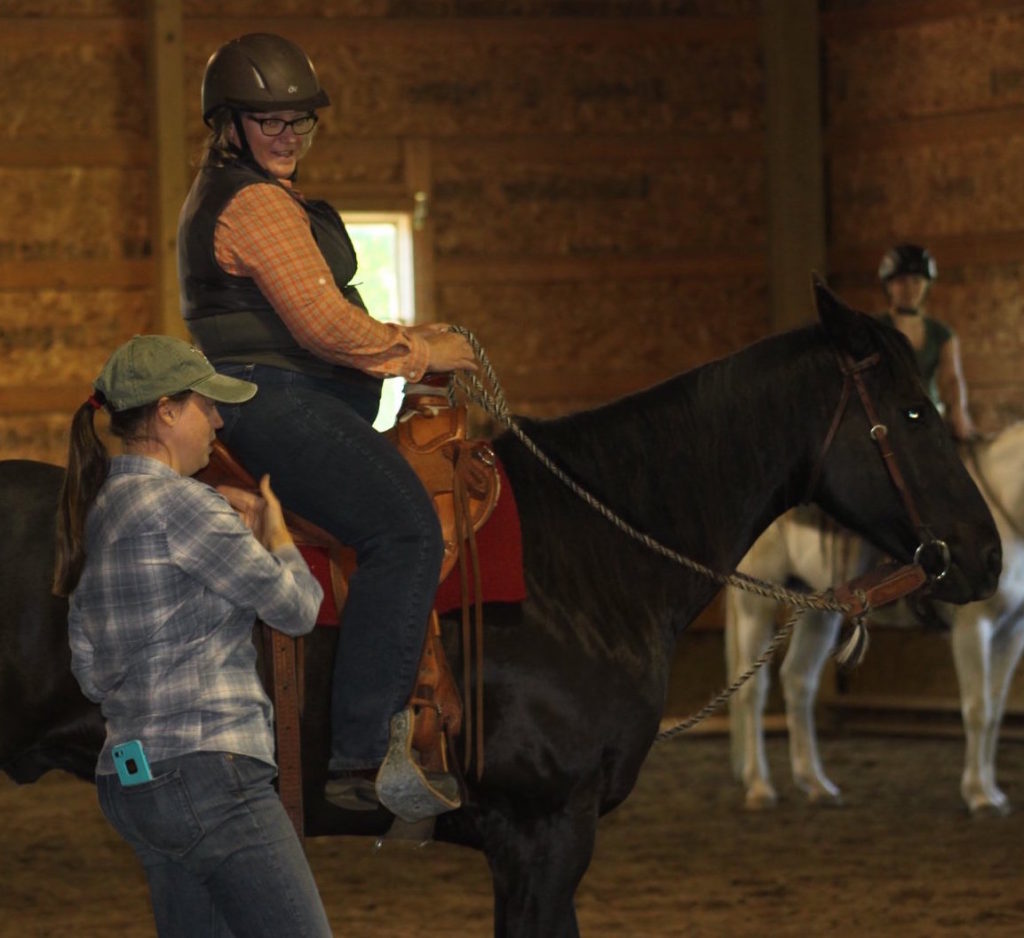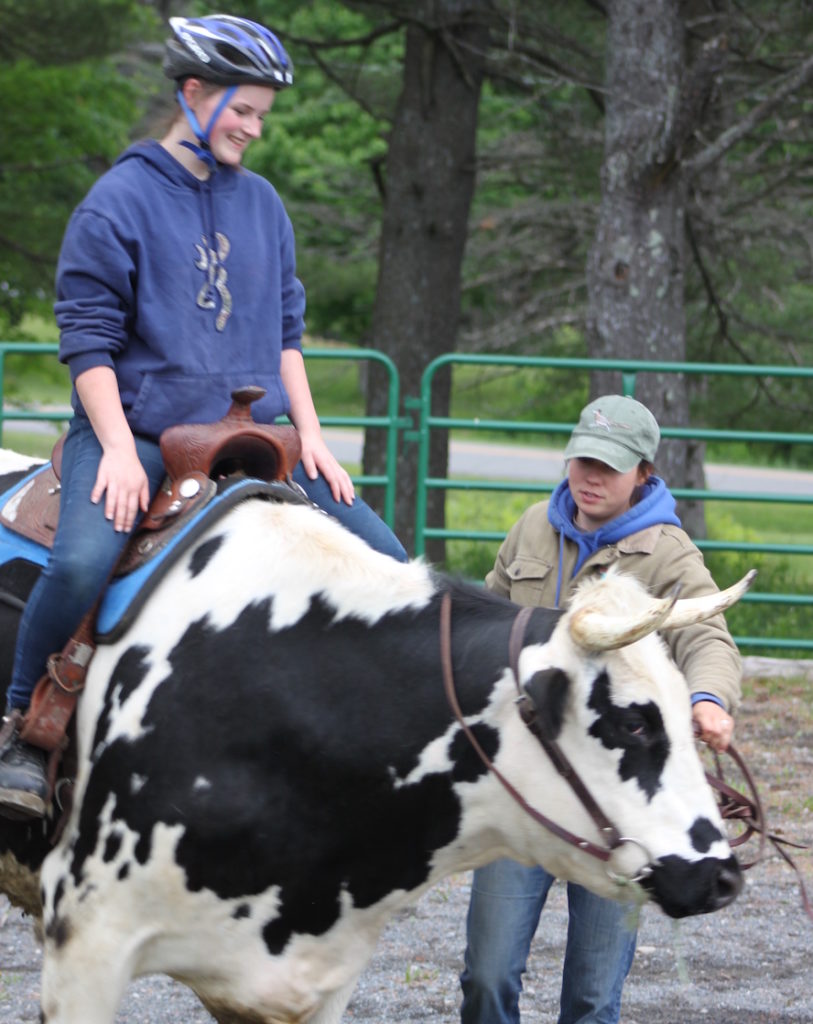New Hampshire rider and Best Horse Practices Summit attendee Jane Edmunds attended Amy Skinner’s four-day stint in Maine and sent us this report. Thanks, Jane!
 By Jane Edmunds
By Jane Edmunds
When Amy Skinner came to Norridgewock, Maine, for four days of intense lessons, students brought mustangs, Morgans, off-the-track Thoroughbreds, and even a steer. What a learning experience!
Skinner returned to Maine for her third clinic, extended to four days by popular demand. New participants and auditors joined returnees for another opportunity for her thoughtful and skilled instruction. Students ranged from teenagers to older, “mature” riders. Some were at the beginning of their riding careers while others were relearning position, seat, and hands and new ways to work toward suppleness and a happy horse.
The horses and disciplines varied greatly: a green mustang, an accomplished Morgan, a quarter horse, a rescue, a OTTB, trail horses and, yes, a steer. Regardless of the differences in mounts, disciplines, and skill levels, a single thread ran throughout the clinic. Skinner helped everyone creating a partnership and better understand the gentle communication between horse and rider.
“In my clinics, words like ‘naughty, stubborn, and resistant’ are quickly replaced with understanding, gentler handling and looking from the horse’s perspective. A horse with a supple and symmetrical body is a happy horse. Riders who strive for this will have fewer problems in their day-to-day work.”
 Individualized, 90-minute sessions began with a discussion of the participant’s goals and concerns. Amy observed the horse and pinpointed exactly what was going on. She then worked with each person on groundwork to help the horse become more confident and supple.
Individualized, 90-minute sessions began with a discussion of the participant’s goals and concerns. Amy observed the horse and pinpointed exactly what was going on. She then worked with each person on groundwork to help the horse become more confident and supple.
Depending on the pair, the lesson then moved to work under saddle with the focus turning toward the rider and how through subtle changes in the seat, leg and/or hands, the rider could help to balance and relax her horse. Each participant left the session with a variety of exercises to work on in order to move forward in the partnership. Participants and auditors alike were amazed at the effects of seemingly minute changes.
One returning participant wrote, “I appreciate Amy’s understanding of my goals for me and my horse, as well as her ability to give me new ‘tools’ to help us communicate more effectively. I love that I learned such a wide range of new skills.”
Another added, “Amy observed that my horse didn’t track squarely and has given me exercises to help my horse balance and for me to alter my weight and cues at our turns. Thank you, Amy!”
Throughout each day and each session, Amy responded to questions from participants and auditors carefully explaining what each exercise was working to accomplish. We all laughed when we each “became” a horse and were led or steered, experiencing first-hand why our horses often have difficulty understanding what we are asking them!
One student said, “Amy is simply gifted. She can see the whole horse, where worry exists, where there is physical tightness,” an auditor wrote. “Her kind patience is a perfect match for the riders who are striving to do the very best for their horse.”
 On the final day, a young teenager brought her three-year old steer, with long and sharp horns! Although she had been on his back before, the teen had been unable to steer him and was seeking help. We all sat in awe as we watched Amy teach the fearless teenager to move the steer in a Figure Eight.
On the final day, a young teenager brought her three-year old steer, with long and sharp horns! Although she had been on his back before, the teen had been unable to steer him and was seeking help. We all sat in awe as we watched Amy teach the fearless teenager to move the steer in a Figure Eight.
One young rider’s mother summed up the clinic, “Amy is a keen observer of not only horses but people. She is able to offer valuable direction to riders of all stages to deepen their relationship and success with their horses. She embodies a philosophy that each small success is to be celebrated because it is a step toward your goal; a great lesson with horses and in life.”
Additional rider comments:
- Amy helped me become a more educated, compassionate, and thoughtful rider
- Amy can look at the horse and rider, see what they know and can do, and make improvements from there; she never once compromises the horse or rider either physically or mentally.
- I gained a better understanding of how my horse worked so that I can have a better working relationship and overall connection with him.
- Another commented that although it was difficult to relearn leg position, the results were amazing and allowed her horse to more effectively use his shoulder.
Participants and auditors left the clinic all with the same reprise: “When are you coming back, Amy? Please return again soon and stay longer!”
